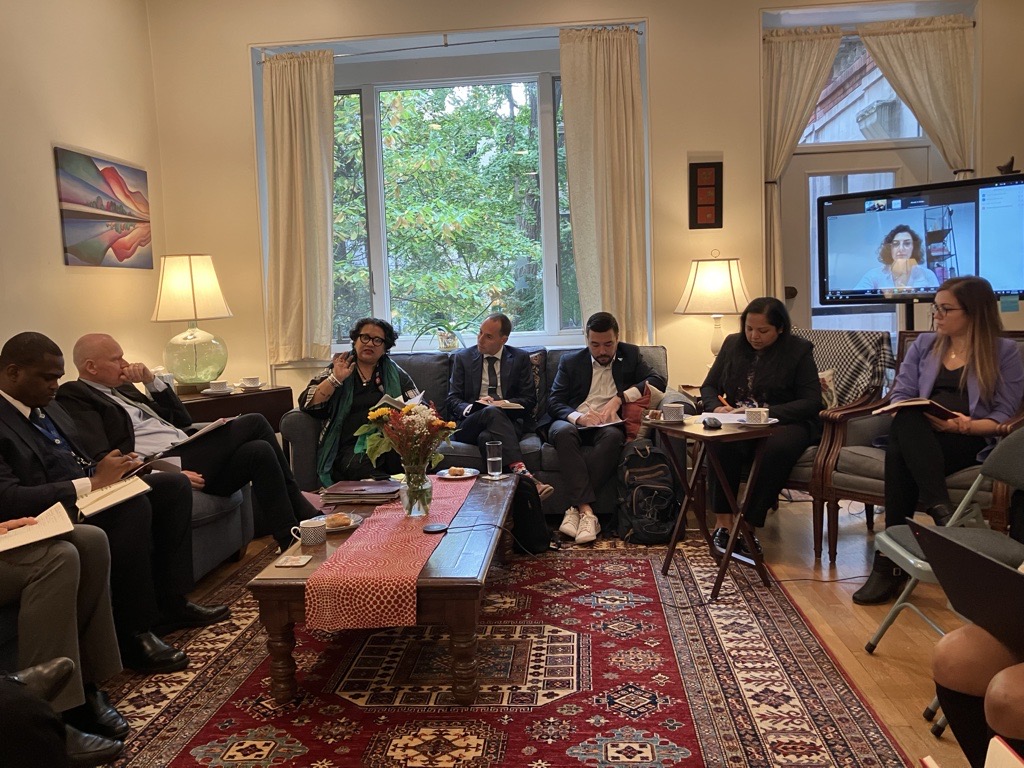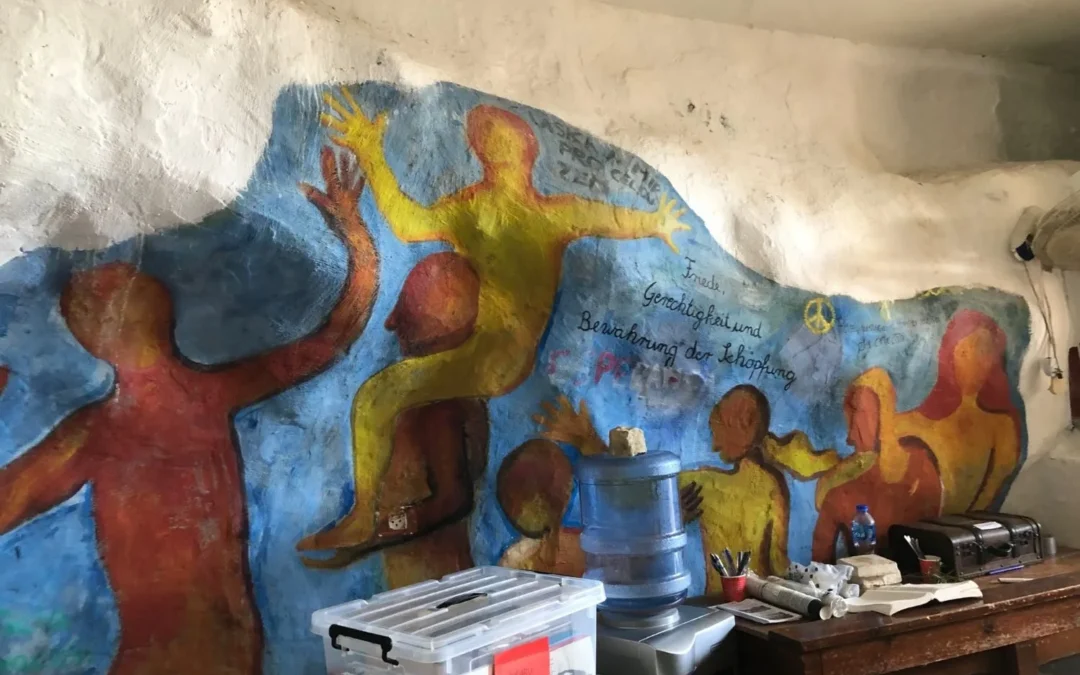On 29 October, local peacebuilders, UN civil society, and diplomats gathered at Quaker House to discuss ways to make the international financial architecture more impactful and relevant for sustaining peace at a local level. QUNO in partnership with the Global Partnership for the Prevention of Armed Conflict (GPPAC), the Transparency, Accountability, and Participation Network (TAP), the Permanent Mission of Sierra Leone, and the Permanent Mission of Sweden, urged participants to explore the progress made and examine the challenges faced in the implementation of policy commitments on financing for peacebuilding. Sources of financing include through Official Development Assistance (ODA), Foreign Direct Investment (FDI), trust funds under multilateral banks and other mechanisms like grants and loans. This discussion served as a platform for local actors to share their perspectives and experiences of peacebuilding with the UN community before the 4th International Conference on Financing for Development. The upcoming conference aims to address new and emerging issues, the urgent need to fully implement the Sustainable Development Goals, and support reforms of the international financial architecture.
The purpose of financing for development is to use money to benefit people and the planet. To achieve this, the international community must increase efforts to invest in peace, as it is broadly recognized that investing in peace is more cost effective than addressing the aftermath of the conflict. Financing for peacebuilding is a broad area and includes delivery of basic services, like health and education, as well as economic activities, investing in human rights, and safety and security. The consistent funding gap for peacebuilding poses a challenge in progressing on the 2030 Agenda for Sustainable Development. A meeting participant emphasized the need to align financing with SDG goals by examining global, regional, and local policies.
Fijian peacebuilder Sharon Bhagwan Rolls spoke about the need to decolonize peacebuilding. She suggested that reform of financial systems must prioritize indigenous peacebuilding practices and actively empower local peacebuilders and communities. Changing peacebuilding approaches to incorporate local practices will allow peacebuilders to have more control of their efforts. Many participants supported increasing local peacebuilders' ownership, such as by investing in traditional justice methods. Decolonizing financing would shift away from approaches where donors dictate how peacebuilding should be carried out and place heavy reporting burdens on local actors. They emphasized the need to reduce reliance on external donors while giving local actors more power to make decisions. Denmark was praised as a good example of this, as it lets local peacebuilders decide how to spend funds.
As the 4th international conference on financing for development approaches, QUNO will continue to elevate local voices to create more inclusive outcomes in financing for peacebuilding.







